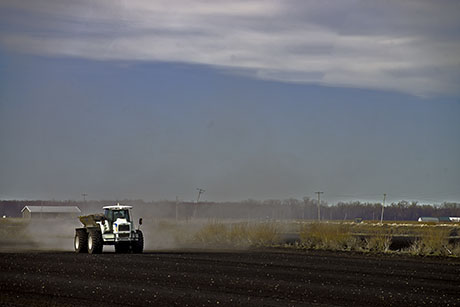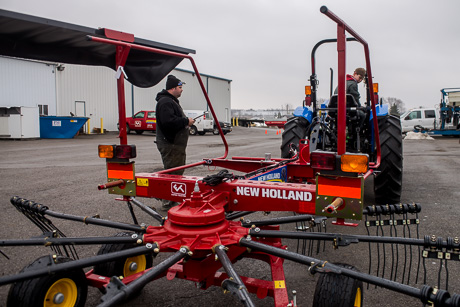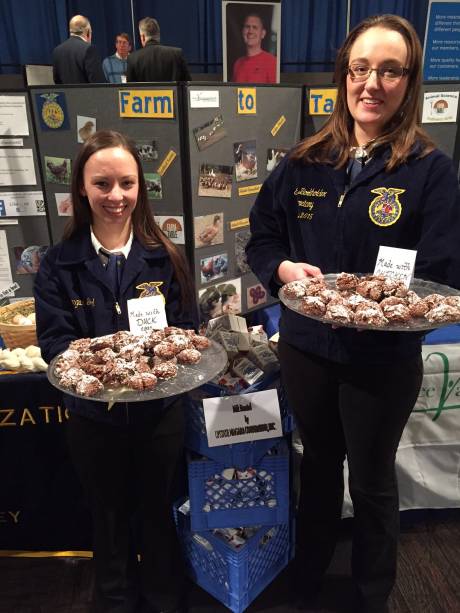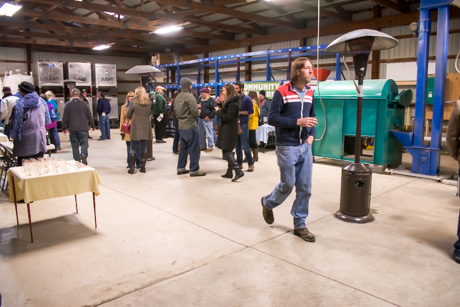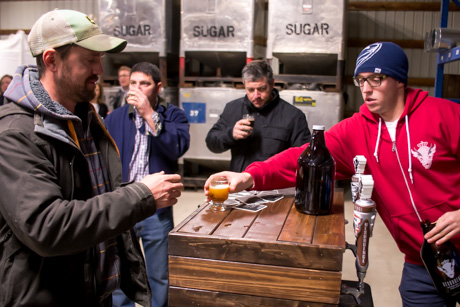The outlook for farm profits in 2015 is far from sunny, according to media reports, and Craig Yunker, CEO of CY Farms, sees things much like other industry experts and economists who are predicting tight and declining margins.
Yunker, who stays abreast of agricultural markets and trends in the normal course of business, just returned from trips to California and Chicago, where he met with other farm executives and farm profits were very much the focus of discussions.
"We're looking at softer prices, tighter margins and a tougher year," Yunker said. "The good news is, farmers are in pretty good shape. Dairy farmers are coming off a strong year. The guys growing grain had good years when the market was strong. A lot of them paid down debt and pre-paid expenses going into 2015. Most farmers are strong financially in terms of balance sheets and that should help them survive these tighter markets."
Yunker is a member of the Association of Agricultural Production Executives, which is a group of 150 farmers. They just met this past week in California. He's also a trustee for the Farm Foundation, which just met in Chicago.
Much of the concern about farm profits is being driven by a recent USDA report, which predicts a 25-percent decline in farm income for 2015.
Corn prices have fallen substantially from their high of two years ago.
In grains, the nation's farmers enjoyed record exports in 2014, but export revenue is expected to decline in 2015 (volume should remain roughly the same, but prices are down).
Globally, grain inventory is up, cutting demand.
The rate of economic growth in China is slowing, which cuts the demand for exports.
India has a big stockpile of wheat.
The strong U.S. dollar makes U.S. exports more expensive for other countries.
There's a glut of dairy products on the market.
While lower fuel costs will mean some savings, the cost of fertilizer hasn't caught up yet.
There's been no impact on seed prices yet.
With unemployment rates down, the labor market is tight, especially for truck drivers. Yunker expects that to push labor costs higher.
On the farm labor front and immigration, there are not as many immigrants coming to the U.S., so there are fewer available workers. As workers return to their home countries, or get arrested, or take jobs in other sectors, they're not being replaced by new workers. That will mean higher wages for the available farm workers.
A lot of vegetables grown locally go to food processors and those seasonal contracts haven't come out yet, so it's hard to predict what the prices will be, but Yunker said he's expecting prices to be softer this year.
There's a lot going on in the world that has a ripple effect on farm prices.
There was a huge worldwide onion crop last year, but the dockworkers' strike in California also means that onions that would normally be shipped to Asia are starting to flow East, so onion prices are down and dropping.
The weather has meant people are less likely to dine out, which has a big impact on cabbage prices, since a lot of the cabbage market is driven by what restaurants buy (think, for example, cole slaw).
While lower fuel prices mean consumers have more dollars to spend, they don't typically spend that extra cash on more or better food or eating out more often.
"The benefit of lower fuel prices really goes to Walmart and those places rather than farmers," Yunker said.
As for ripple effects, the turmoil in the Ukraine could have an impact on corn prices. Ukraine is typically a big corn producer, but civil war could disrupt production, but worse for Ukrainian farmers is the deflation of their country's currency. Corn seed could be prohibitively expensive, so what do they do? Yunker wondered. They could dip into their wheat bins for seed and grow a lot more wheat, which costs them nothing. Whatever Ukrainian farmers do will impact the worldwide grain market.
"Those kinds of things are going on all over the world," Yunker said.
The lack of a pipeline for shipping oil from the north into U.S. production facilities and ports has oil producers turning to rail. (Notice, there've been more oil tanker fires recently?)
Haulers moving oil on rail means there's less capacity for shipping grain by rail, Yunker said. Midwest grain growers can't move their grain, so they're forced to lower prices.
The dock strike in California is having several impacts on ag prices. Milk powder, for example, that would normally sail to Asia, is being trucked (because rail cars aren't available) to the East Coast for shipment to Asia by that route. That's leading to higher milk powder prices.
Yunker expressed some frustration with how Obama is handling the strike, or not handling it.
"I don't understand why the labor secretary goes out there," Yunker said. "He's going to be a labor guy. He (Obama) should take a stronger stand. Trade is so important to ag. Ag depends on exports. ... there's been no push for trade since Obama took office."
There was a time, Yunker said, when trade talks would be in the news all the time. The past few years, not so much.
"Generally, agriculture is disappointed in that," Yunker said. "We haven't seen any trade deals in six years. Now he's asking to fast-track trade, but the Republicans are loath to give it to him because they're mad at him for a lot of reasons."
The boom in farm revenue the past couple of years drove up the cost of farm real estate, Yunker said, which means some farmers are paying higher mortgages, and farmers who lease land are being asked to pay higher rents when those leases come up for renewal.
Predicting farm revenue with any certainty is about as trusty as predicting the weather months from now, which brings us to the weather. Another drought in the Midwest or an El Nino will impact crops and prices, thereby changing the whole outlook.
Local impacts both in WNY and everywhere there are farmers means car dealers will sell fewer pickups as cash flow for farmers tighten, and farm equipment dealers could see sales decline.
For the most part, Yunker thinks local farmers will hold on in 2015.
"There are players who will be really pinched because they don't have their house in order," Yunker said. "But for the most part, guys will be in good shape because they have good balance sheets."



